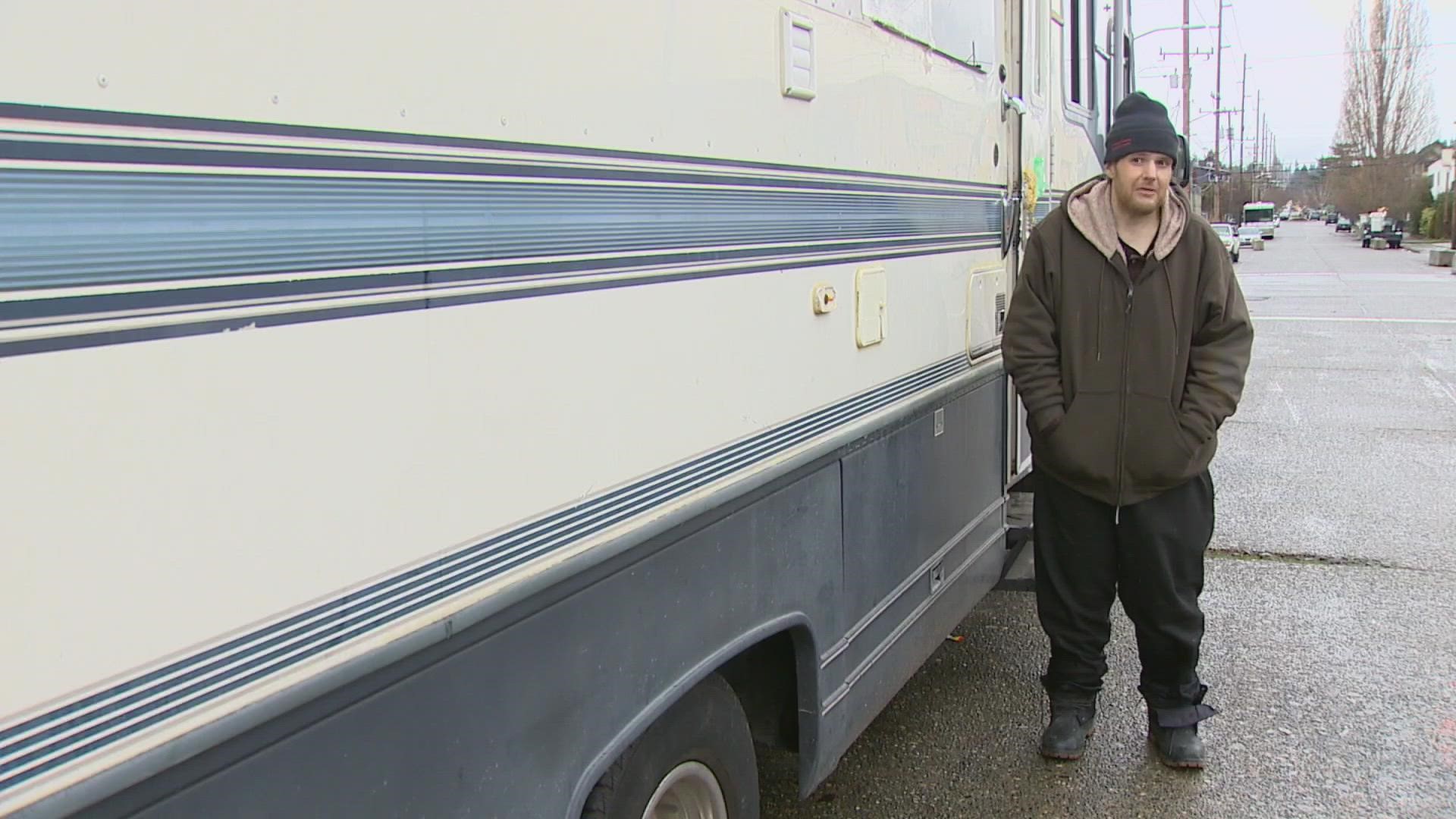SEATTLE — Timothy Barto says people have a lot of misconceptions when they see someone living out of an RV.
"They think we aren't normal or we didn't have conventional lives at one point," Barto said.
Living in Seattle since 2015, Barto started to feel the crush of rising rent during his first two years as a Seattleite.
"We were paying $2,700 a month in Cap Hill for a two-bedroom. We couldn't afford it, so we ended up subletting it," he said.
Barto said he rented out the two rooms and lived in the basement, but his landlord forced him to stop doing that. There was also a $300 rent increase.
"It was going to be $3,000 a month and we couldn't do it," Barto said.
Since 2017, he's lived on the streets in cars and RVs, all of which, besides his current home, have been impounded for excessive tickets.
"If it gets impounded, who can pay? It's like $1,200 to get it out," Barto said.
It's a vicious cycle and a multi-faceted problem the City of Seattle is working to address. In his 2023-2024 budget, Mayor Bruce Harrell allocated $250 million for affordable housing. Ninety-five million dollars is being sent to the King County Regional Homelessness Authority for them to continue their work.
On the April Special Election Ballot, King County voters will decide on a proposed $1.25 billion, nine-year property tax levy to improve mental health services.
"You can't force people to get therapy or treatment, but I mean, you can certainly make it more accessible," Barto said.
He is hopeful improving mental health services will address the drug problem he sees in his community.
"That is a huge issue, fentanyl. Like everywhere around the country, it's rampant here and it's a problem," Barto said.
As the homelessness issue has worsened, complaints about it from business owners and people living near encampments continue to be brought to the attention of elected and local media. Their frustrations, Barto says, are valid.
"Generally with the RVs comes messes and people being disrespectful," he said.
Barto hopes, however, there can be a middle ground. A mutual respect that goes both ways with an understanding that everyone is a human. Since becoming unhoused, Barto says he's been gobsmacked by the amount of hate that he's experienced.
"I have never experienced such vitriol and blind disgust and hatred by the general public ever. It's bizarre," he said.
Barto plans to be off the streets within the next month. He needs to start dialysis soon and his father, in Florida, has agreed to let him come back to live with him. While the health issue is unfortunate and in part caused by the stress of living on the streets, he's thankful to have something so many others on the street don't: an escape route.

